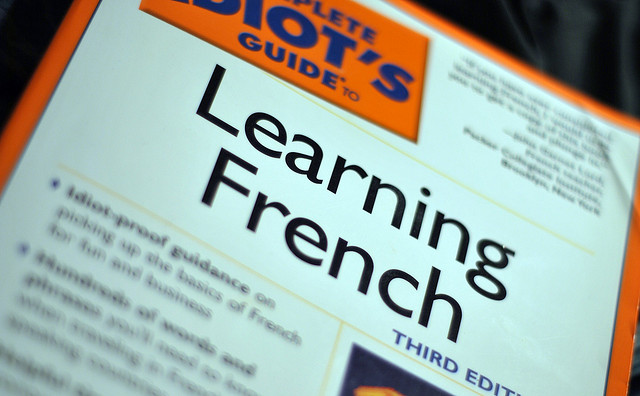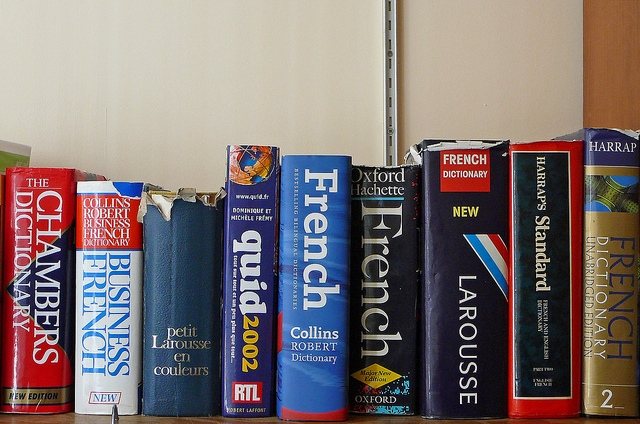The Most Difficult Things About Learning French
 Learning French via Morgan / Flickr
Learning French via Morgan / Flickr
Le Français, the iconic language of love, can be considerably less romantic when you’re learning verb conjugations and trying to decipher what your waiter in a Parisienne café is trying to say to you. Learning French has a number of challenges that can make it frustrating to learn.
Here are 4 of the most difficult things about learning French:
Prickly Pronunciation
Without a doubt, the hardest part of learning French is the pronunciation. Written French and spoken French seem worlds apart at first, since there are a number of rules that dictate when certain letters are not pronounced, or words are suddenly squashed together.
Watch out for rules that make “je aime” become j’aime; that render the “t” in cabernet and “x” in bordeaux silent, and that put together mean d’accord which has both a contraction and a silent “d.”
Some of the difficulty comes from the differences in timing and linking sounds between French and English. Whereas English is a stress-timed language, French is syllable-timed. This makes French comprehension a challenge, as you’ll have to tune your ear to the rhythm and cadences of the language, and to recognise those liaisons and enchaînement.
Oh and don’t forget those tricky R’s, and nasal vowels!
Allocating the Right Accent
Written French can also be a minefield when it comes to figuring out where the many accents go. The most common accent in French is l’accent aigu: é, used only on the letter “E.” There are many more, of course. You’ll need to learn l’accent grave (è)la cédille (ç), l’accent circonflexe (ê), and le tréma (ï).
Luckily once you’ve learnt the rules governing accents, understanding pronunciation will be a lot easier, as well as figuring out the meaning of a word.
Identifying False Friends
Learning French is a good exercise in seeing just how much languages borrow from each other. Unfortunately, words that look the same don’t always have the same meaning, so it is important to look out for these false friends.
Some examples are confidence, which means a private or secret matter in French, affluence meaning a large crowd, grand which is big, librarie to say bookshop, location means rental, and (watch out for this one) a préservatif is a condom. Mixing these up can easily result in an amusing or embarrassing misunderstanding.
 Memorising vocabulary and conjugations is essential / via Tim Green, Flickr
Memorising vocabulary and conjugations is essential / via Tim Green, Flickr
Verb Conjugations and Their Many Exceptions
Like the other Latin languages, French has a substantial number of verb conjugations. There are 6 different forms, depending on the person (je, tu, il/elle/on, nous, vous, ils/elles). Most verbs follow a certain pattern, depending on the verb ending (-er, -ir, or -re). Unfortunately, there are a number of irregular verbs as well, that have to simply be memorised. This is especially difficult in the beginning stages of learning French, as many common verbs are irregular.
…
While French certainly has its challenges, the rewards of being able to speak this language is incredible. If you want to work for an international aid organisation, want to understand that quirky French movie, or are looking to brush up on some basic phrases for your travels, French is a fun language to learn despite its occasional difficulties.
Learning French just got a lot easier with Listen & Learn. Find the perfect classes for you, online or face-to-face. Contact us today to find out more.


